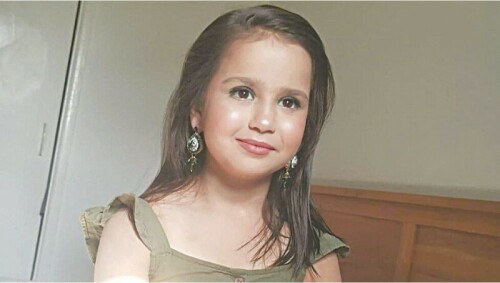THE horror stories have been emerging for weeks. Atrocities against children, bodies on the streets, charred corpses in the morgues. There is disturbing video footage of women mown down by machine guns as they peacefully demonstrate. And now there are revelations of large-scale massacres amid the mayhem engulfing Ivory Coast.
Thousands of people have been killed and one million have fled their homes in the five months since incumbent Laurent Gbagbo lost a presidential election but refused to stand down. His abhorrent behaviour in a country only recently scarred by civil war sparked a conflict that threatens the stability of the region, offers a stark warning to the rest of Africa and throws down a challenge to the international community.
Last year’s vote, delayed at least six times by Gbagbo, was designed to reinvigorate a country considered a beacon of prosperity in its postcolonial heyday. Despite being carried out under UN supervision, judged as exemplary and clearly won by former prime minister Alassane Ouattara, the election has ended up increasing the turmoil that has plagued Ivory Coast for two decades.
Almost all the blame for the chaos can be laid at Gbagbo’s feet. The former academic rejected efforts to resolve the tensions while he and his supporters stoked up ethnic and religious divisions with inflammatory language against Ouattara — a northern Muslim — and his supporters and unleashed a campaign of terror. Gbagbo deserves to answer for this in the international criminal court.
Now, with fighting on the streets of the commercial capital, Abidjan, and defections of key allies, an end to this crisis may be in sight. We must hope so, as medicines run out and families dare not leave their homes to buy food. But Ouattara has questions to answer. He has done little to reassure southerners that he would govern in their interests — and the discovery that perhaps 1,000 people were slaughtered last week in a district of Duekoue under the control of his supporters will only increase fears.
It will be hard to rebuild trust given recent events, especially just eight years after the civil war. But there are clear lessons to learn. Although the international community displayed rare unanimity against Gbagbo, demanding he respect the election result, diplomatic efforts to resolve the crisis were hesitant. The African Union prevaricated, while the rest of the world fleetingly focused on the curiosity of the besieged winner holed up in a plush hotel, then turned away as the Arab spring erupted. It took until last week for the UN Security Council to finally adopt a tough stance against Gbagbo and his cronies.
What a contrast with Libya, where the UN Security Council rapidly passed one of its strongest resolutions in years, invoking its “responsibility to protect” to authorise military action. Sadly, despite the presence of thousands of UN peacekeepers, there seems to have been no shared sense of responsibility to protect the people of Ivory Coast.
The events have also served to highlight one of the biggest issues facing Africa: the reluctance of Big Men such as Gbagbo to leave office. We have just seen this in Uganda, where Yoweri Museveni used state patronage to cling on to power after 25 years despite once admitting Africa’s problems were caused by “leaders who overstay”.
There are 19 elections due in Africa over the next 18 months, including a critical poll this week in Nigeria. There needs to be a far tougher line against despots who refuse to be dislodged. The African Union must show leadership while the West should stop showering them in aid and selling them weapons.
— The Guardian, London












































Dear visitor, the comments section is undergoing an overhaul and will return soon.